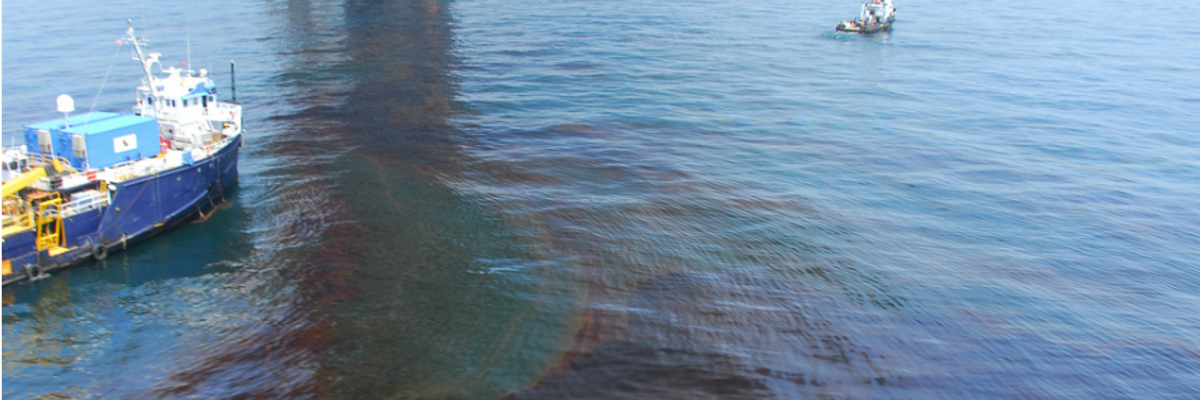A new offshore drilling project in the Gulf of Mexico has gotten federal approval and is set to begin near the site of the BP Deepwater Horizon disaster that killed 11 workers and sent millions of gallons of oil pouring into the Atlantic Ocean in 2010.
According to Harper's Magazine, which first reported the news late Tuesday, the Bureau of Safety and Environment Enforcement approved a drilling permit on April 13 for the Louisiana-based LLOG Exploration Offshore LLC, which will drill for oil and gas in the deep-water Macondo reservoir, the site of the 2010 explosion. The agency previously approved the company's exploration plans in October after the Bureau of Ocean Management conducted an environmental review of the project.
LLOG will be the first company to attempt tapping those same reserves since BP's catastrophic effort.
On April 20, the five-year anniversary of the BP oil spill, environmental activists launched a week of action against the fossil fuel industry and commemorated the lives that were lost on the day the Macondo well blew up after a series of mechanical and safety failures. Despite some restoration progress, "the Gulf continues to suffer from the impacts of the oil and gas industry and is vulnerable to future major drilling disasters," Raleigh Hoke, communications director for the Gulf Restoration Network (GRN), wrote at the time.
"Drilling in the Atlantic could destroy coastal communities, economies, fish and marine mammals for decades to come," Jacqueline Savitz, vice president of Oceana U.S., stated on the anniversary. "It would lead to a coastline scattered with oil and gas rigs, and industrialization in coastal communities. Commercial fishing, tourism and recreation would suffer from routine leaks as well as the looming risk of a Deepwater Horizon-like oil disaster along the East Coast."
Richard Charter, senior fellow with the marine conservation group Ocean Foundation, told the Associated Press on Wednesday that LLOG's plans were cause for concern. "You don't want someone not particularly qualified and not fully amortized to be tangling with this particular dragon." He added, "When a company can't pay when something goes wrong, generally it's the public that pays."
Last Friday, BP won a bid to appeal some of the damages awarded to Gulf Coast residents and businesses under a 2012 settlement.
Federal approval of LLOG's plans comes shortly after the Obama administration gave the green light to oil giant Shell to begin offshore drilling in the risky and remote Chuchki Sea in the Arctic. Environmental experts have long warned that an accident in that region could be more devastating than the BP spill.

